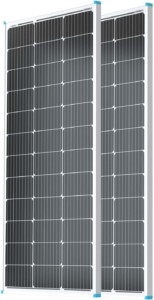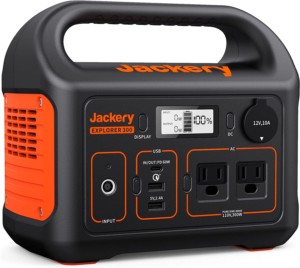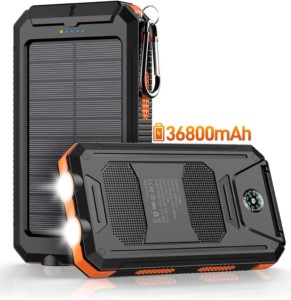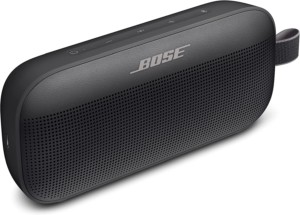
What are the Top 6 Best Solar Products
We are reader-supported. When you buy through links on our site, we may earn affiliate commission.
In 2020, the solar industry reached record-high sale rates. As individuals work on shrinking their carbon footprints, they transition their energy reliance away from fossil fuels. Adopting solar-powered devices can meet modern demands while preventing additional climate change effects.
Congress established legislation that supports the renewable energy boom. Individuals are eligible for tax credits when they purchase solar items. With the government’s financial support and eco-consumerism rates rising, we may notice a mass shift towards clean energy technology.
The Case for Solar Devices
Nearly 80% of the U.S. power supply derives from fossil fuels. When we charge our appliances and fuel our homes with conventional electricity, we contribute to greenhouse gas emissions. The air pollutants alter the atmosphere’s natural composition, creating environmental degradation.
Earth relies on a consistent atmospheric composition, maintaining life-sufficient temperatures on the surface. Naturally, it absorbs sunlight, develops heat, warms the surface, collects excess energy and emits it to space. The global ecosystems function adequately under the planet’s organic conditions.
When greenhouse gases invade the atmosphere, they alter the temperature control process. The pollutants have a high solar radiation-to-heat exchange rate. They also trap additional energy in the atmosphere, developing more heat over time.
The overproduction and entrapment of heat increase the planet’s temperature, fueling adverse ecological effects. Solar energy significantly reduces the greenhouse gas emissions associated with the electricity industry. Individuals can shrink their carbon footprints and reduce their utility costs by adopting solar power products.
Environmental engineers and scientists are developing advanced technology, accessing the sun’s energy for electricity production. They created pool covers, panels, lights, generators, battery packs and speakers that are self-sufficient. Decreasing your reliance on the grid supports environmental conservation and increases your savings.
1. Pool Covers
Solar pool covers are one of the best solar products on the renewable energy market. Covering water sources is essential to resource preservation. As the climate changes, the evaporation rate increases, depleting pool water.
The device reduces sunlight’s effects on water levels and decreases maintenance needs. Additionally, solar pool covers provide temperature control functions. They can heat the water when it is cool outside, converting sunlight into energy.
Engineers are also developing advanced covers that fuel the filter and heating pump with excess solar power. The system connects the cover to a storage device or directly to the filter and pump. Limiting a pool’s conventional energy use significantly decreases maintenance costs and greenhouse gas emissions.
2. Panels
Solar panels are another top product on the market, providing residents with emission-less electricity. Most rooftop panels contain photovoltaic (PV) technology and convert sunlight into energy through solar cell conversions. They provide homeowners with the most affordable electricity on the market, ranging from three to six cents per kilowatt-hour.
After installation, the panels require low maintenance. Individuals can clean them a few times a year to achieve optimal efficiency levels. You can ultimately eliminate your electricity bill when connecting your home’s electric appliances and system to the clean energy source.
3. Outdoor Lights
Outdoor solar-powered lights also benefit homeowners. The products are self-sustaining, requiring little maintenance. Many manufacturers place light-emitting diode (LED) bulbs in the fixtures, reducing their energy consumption by 75% on average.
Producers develop motion sensor solar lights, increasing outdoor safety. They also create clean energy string lights, adding to a home’s aesthetic appeal without degrading the environment. Solar-powered lights come in various forms, diversifying their potential uses in a home.
4. Generators
Solar generators are essential products for travelers or residents living in high power outage regions. The portable devices contain a panel and a solar battery for storage. Individuals can charge their smaller devices like smartphones and laptops anywhere as long as the sun is shining.
The generators benefit a consumer by providing free electricity on the go. They also create little to no noise when producing power, unlike fuel-reliant options.
5. Battery Pack
Solar battery packs additionally benefit individuals on the go. A small panel converts solar radiation into clean energy. The battery collects and stores excess electricity for consumers’ needs.
Manufacturers design the products to power small appliances. The battery contains a 3.6-volt rating where conventional cell phone chargers reach 5-volts. Solar battery packs can get the job done if you need to charge a smartphone or tablet while camping.
6. Speaker
Large tech companies are manufacturing solar-powered speakers for portable uses. The most efficient versions contain twice the average battery power, meeting consumer needs. They also contain a backup battery, helping individuals access emission-less tunes when the sun goes down.
Become an Eco-Consumer
When you are ready to purchase solar products, you can ensure their efficiency and sustainability by evaluating their certifications. The Electronic Product Environmental Assessment (EPEAT) certification signifies a device’s limited ecological impact. Looking for certifications and reading consumer reviews can improve the sustainability of your purchases.
Share on
Like what you read? Join other Environment.co readers!
Get the latest updates on our planet by subscribing to the Environment.co newsletter!
About the author

Jane Marsh
Starting from an early age, Jane Marsh loved all animals and became a budding environmentalist. Now, Jane works as the Editor-in-Chief of Environment.co where she covers topics related to climate policy, renewable energy, the food industry, and more.











